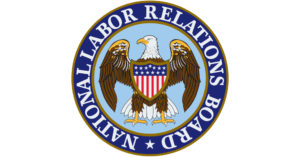NLRB: Business Rationale is Relevant Factor of Employment Policy Review
The NLRB’s Boeing Company decision this past December marked a significant change in how the Board reviews facially neutral workplace policies that appear to interfere with rights protected under the labor relations law. In the past—as established by the Board’s 2004 Lutheran Heritage decision—policies were held unlawful if they could be reasonably construed as prohibitive of protected activity. In Boeing, the Board asserted that it would evaluate the nature and extent to which the policy in question affected employee rights against the employer’s legitimate justifications for its policy. The Board’s goal: to strike a “proper balance” between the protection of employee rights and business interests.
In Boeing, the question was whether a policy that prohibited the use of camera-enabled devices, including cell phones, on company property was contrary to the labor relations law. The Board acknowledged various business concerns that correlated with the policy, including not only the protection of proprietary information and employees’ personally identifiable information, but also national security concerns and reducing the risk of terrorist attacks. Against these “substantial and important justifications,” the Board determined that the adverse impact of the rule on employee rights was slight.
To learn how Castaybert PLLC can assist with matters of employment law, click here.









